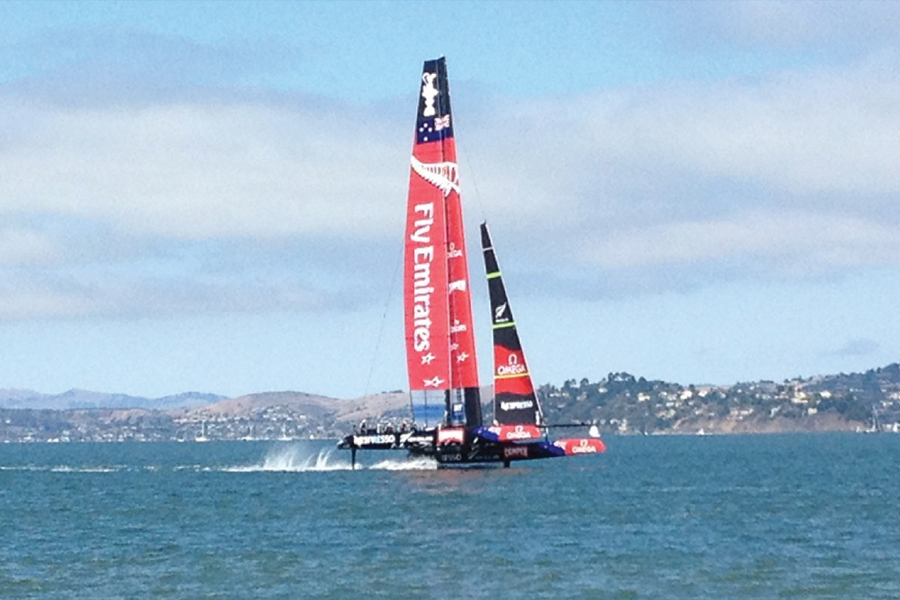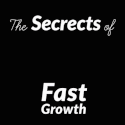Lesson In Franchising

In all steps of the franchise process, be it internal operations of the Franchisor, the interface to Franchisees, or the internal operations of the Franchisees, having delegated roles and responsibilities makes the process of getting the job done far more effective.
It is not very effective having the CEO of McDonalds licking stamps for envelopes, and a young backroom burger flipper telling the CFO how to invest the spare cash!
I had the privilege of attending some of the America’s Cup racing in San Francisco this Spring, and if you want to see how to run an efficient operation, just have look at these teams.
3 years ago the concept of racing 72’ catamarans on hydrofoils was just a dream, and never had such a vessel been built. International yachting came together and decided to start by building and racing Americas Cup 45 Catamarans, to have sailors become use to racing such vessels, and then to graduate to AC72’s around 1 year before the America’s Cup.
This was a “start from scratch” event where the teams had to design and build their vessels, learn to sail them and become extremely competitive for the racing that was to start in July 2013, with the finals of the America’s Cup in September 2013 in San Francisco.
Despite not regaining the America’s Cup from the Americans, in what turned out to be a nail biting series, let’s compare the Emirates Team New Zealand to a Franchise system, and see where it comes together?
Proof of Concept
The first thing is an idea and to test the concept. In the case of the America’s Cup this was a design phase using around 35 design engineers and very sophisticated computer modelling on a very high end Dell computer platform, so much so that it was run at Cambridge University in New Zealand.
We are told that originally the boat looked like it would break up due to massive forces, but these issues were slowly overcome to create the magnificent craft they are racing today. Hydro foiling had also never been done on large racing catamarans like these, and Emirates Team New Zealand worked out a way, and lead the competition, who had to followed to remain competitive.
A franchise system has the similar issues. What are we going to sell, will it work, how do we make it and does the community want to purchase or use it? Peter Ritchie, ex McDonalds Australia, and now Chairman of Mortgage Choice says there must be a “proof of concept”, or simply does it work and can we make a quid out of it? Competition then often follows suite, and we have to adapt to stay ahead of the competition, just like Team New Zealand tried to do. Unfortunately for them, the competition learnt from them, and went one step better, to eventually win the series 9 races to 8.
Effective use of people power
Emirates Team New Zealand had around 105 people involved, and with families, had to relocate around 300 people in San Francisco from May until the end of the America’s Cup. Grant Dalton, the CEO of the operation has run an extremely effective team, and just to further make his life even more complicated, he actually was one of the crew on board the boat. This in itself is amazing as he is grinding winches with 20+ year olds, and holding his own, not bad for a guy of 56.
In the Emirates Team NZ, everyone knows exactly what they had to do, and there is absolutely no holding back on that is “not my job”. I watched them take the wing off the boat 3 days in a row and exactly the same process was done, the crane did exactly the same thing, same people on the trolleys to attach the wing and wheel it into the shed – an absolutely disciplined performance. What they had done is “systemize” basically every process they undertake,
and in a sport of seconds, this is all about consistency and repeatedly doing the same thing, at 100% performance.
In franchising the top performers have similar job functions and job descriptions.
My view (and I worked 20 years for an oil company) is that the most successful businesses can delegate as long as there is a process that establishes the basics of what you wish to achieve. I work with many Franchisors and the best ones do this very well. The ones that concern me are ones where the lines become so blurred, everyone is trying to do everything – and not very effectively.
If you appoint someone as a Manager, let them do their job as per their Guidelines and KPI’s. I often I see where the CEO (and others) all become experts on such things as where to place a store – normally near where they live, as that is the area they know best. I can only say – stay out of it! You naturally have the right to make a “suggestion” but let it go after that. Too often in a Franchise operation you can see the Founder or CEO still wanting to make every decision, where their responsibility is to make sure the process is in place to create the best result.
The great case of delegation which I respect on Emirates Team New Zealand is that even though Grant Dalton (CEO) is in the crew (on the boat), he does not contribute to the brains trust in the running of the boat on the water, just head down and GRIND! The skipper Dean
Barker and his tactician and strategist make all the decisions in the race, and Grant’s decision to be there is because he can earn it, and MUST pull his weight or make way for another.
Boats like this are run purely on muscle, with no stored energy allowed. Even running hydraulics to trim the boat is all generated by pumping those grinding handles. It has been described a doing a 25 minute beep test when you watch the grinders generating the energy to trim the boat.
A good franchise system is normally run with little excess fat as well, and the best way to do this is making sure everyone knows their job and does it effectively. I was told the US Team basically had 2 people to one for each person on the New Zealand team, and has probabaly spend over double of what New Zealand has spent to defend the Cup. Making sure money is spent to achieve the best results is surely a common thing to both.

Focus on the main event
The next thing is that in Emirates Team NZ – EVERYTHING was focused on one thing – winning the America’s Cup. The atmosphere was all about being focused on the goal, and making tiny changes to improve the performance. In the period between winning the Louis Vuitton Cup and the beginning of the finals, changes were being made to the boat, and every night after racing, everything was checked, double checked and altered if it improves performance.
Australian Jimmy Spithill who skippered the successful US defender, Oracle was equally focused and probabaly has made the greatest recovery in international sport, coming from 1 – 8 down to eventually roll ETNZ 9 – 8. His focus and determination is now legendary, as he did not waver despite being at Match Point against him for over a week.
I liken this to a top franchise system. Companies like McDonalds have been legendary for making sure they achieve the absolute best in product and processes that they can. Ray Krok (founder of McDonalds) was often seen to be picking up discarded pickles because he was annoyed that a McDonald’s driveway looked messy. His philosophy was to do whatever was needed to achieve the best result, irrespective of the cost, and then be able to reproduce that time and time again.
Determination and leadership from the front is what many great franchise systems have, often in the case of the founder being focussed like Jimmy Spithill, and determined not to lose.
Summary
The Emirates Team New Zealand was the most professional and organised team I can ever recall seeing, working with limited resources and huge determination to try and take the America’s Cup back to Auckland. I think many franchise systems would really benefit to look at what had been achieved in a short time on the absolute edge of technology, and ask what they can learn from a group like Emirates Team New Zealand.
A pity they just did not win one more race earlier in the series, before Oracle came up to speed.






